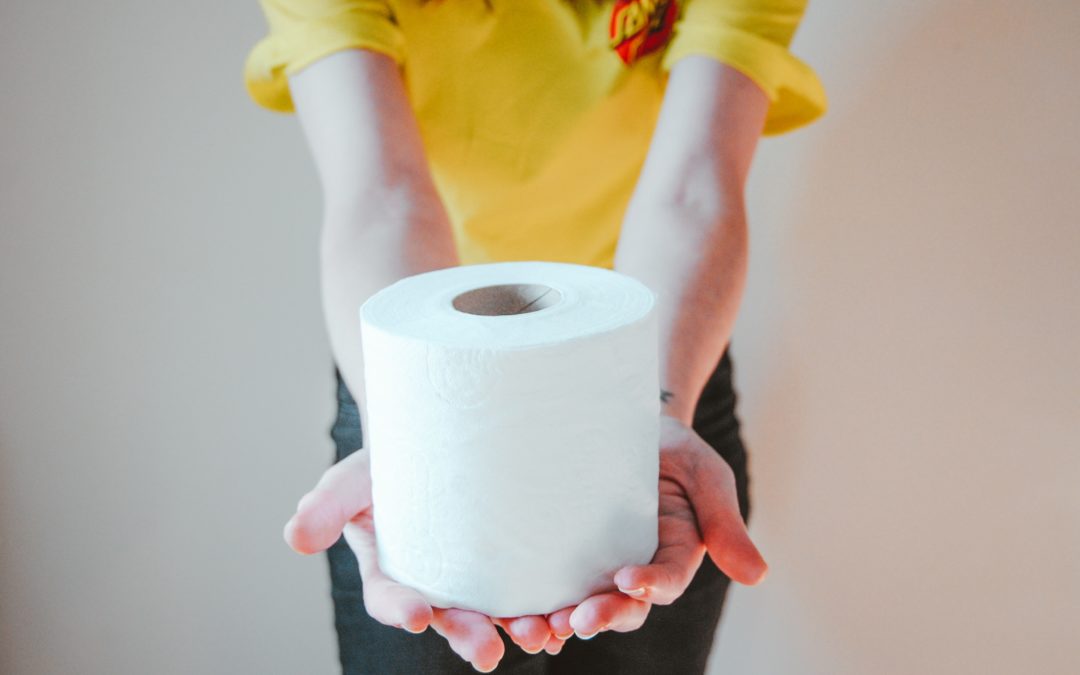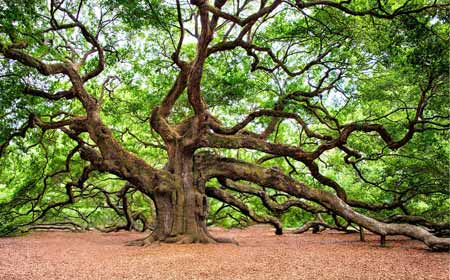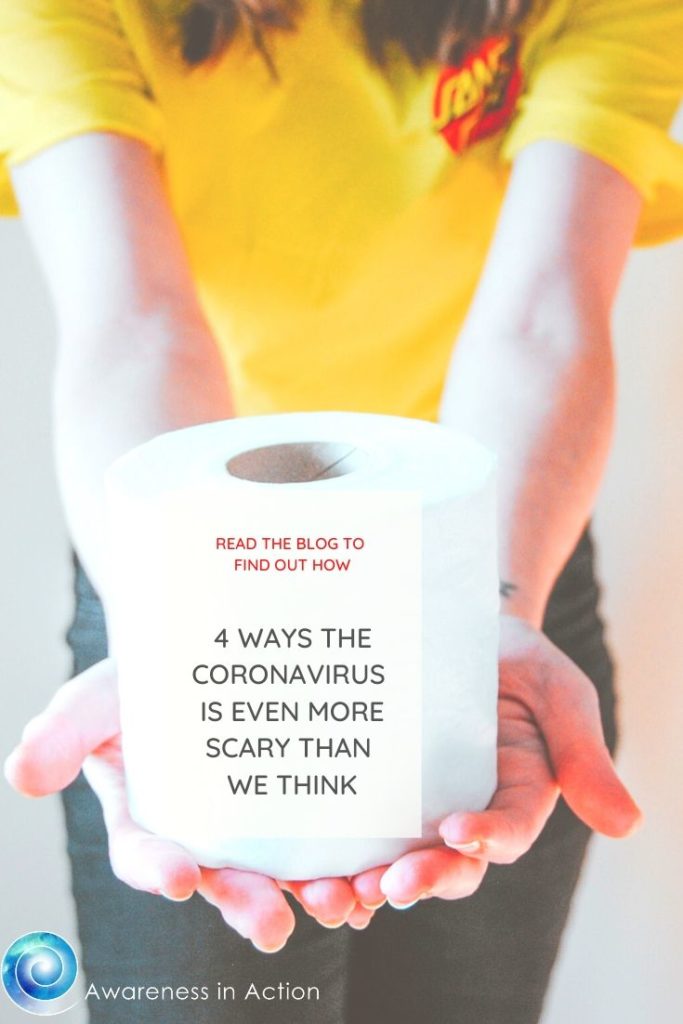
4 ways the Coronavirus is even more scary than we think
Photo by Hello I’m Nik ? on Unsplash
Understandably news of the Coronavirus is everywhere. Everyone is talking about it. All the news channels, on social media are buzzing with it. Families and friends talk about little else. If you are like me at all you’re trying to manage your fears and stay healthy. Maybe you are also reflecting on what this means for all of us. We are having to change our behaviour to prevent the spread of the disease. What do these changes mean for the future?
I’ve been thinking about this quite a bit over the last week.
Here are 4 ways I think the Coronavirus could be scary beyond the obvious danger to our health and wellbeing.
The Coronavirus blame game
When people are scared, they tend to look for someone to blame. Something of that is happening now with this situation.
We’ve all heard the awful stories of people being beaten up because they look Chinese and are suspected of carrying the virus. Right wing politicians looking for a scapegoat for the Coronavirus have pointed the finger at refuges and refugee camps. In the early days of the virus reaching the USA, Trump referred to it as hoax and fake news, blaming the media and the Democratic Party. Even now, Trump is still referring to the disease as, ‘the Chinese Virus.’
We can hope to shrug off this kind of crazy behaviour, but it sets a poor precedent. In France, President Macron has declared that we are at war with Coronavirus. It can rally people to feel that they are fighting a common enemy. It might even bring them closer together. However, if things go on for too long, or get a lot, worse people might look for an outlet for their frustration.
The long-term impact of social distancing
As each day passes, we hear of more countries where people are being advised to work from home. Schools are being closed and large gatherings cancelled. Here in Amsterdam we’re just getting the first signs of spring. After a miserable wet few weeks, the sun is shining. It’s typical terrace weather—when we can all enjoy sitting in cafes by the water, watching the world go by. Last Sunday all cafes and restaurants in Amsterdam were closed. Now we can only enjoy the spring from our homes and balconies.
Of course, the reasons for social distancing are clear. It could be one of our most important tools in slowing the progress of the virus. However, human beings are social creatures. We need social contact and thrive on it. When we feel lonely and isolated it can affect our mental health, increasing anxiety and stress. Research is also showing that it can damage our physical health too.
I have always enjoyed the custom of shaking hands when you meet someone that is practiced in the Netherlands. When I go to see my dentist, or doctor, we shake hands. It’s considered polite and connects people. People in Amsterdam also give three kisses on greeting friends and family. Of course, none of that is happening now. I worry is that it will be lost forever. When will know that it is alright to shake someone’s hand again? Will we want to stay cautious and simply maintain the new communication habits we acquired during the crisis?
Yesterday evening my partner and I were watching a series on Netflix. The people greeted each other with hugs. We found ourselves reacting with surprise, ‘Gosh they were still doing that!’
It’s been suggested that we could refer to the whole strategy as physical distancing, rather than social distancing. This term encourages keeping the distance we need to combat the spread of the virus but keeps open the possibility of social contact in some acceptable form. It could help us to continue to appreciate the value of social contact and to find safe ways to preserve it through these uncertain times.
Coronavirus makes elderly people more isolated
In January 2018, Theresa May famously appointed a Minister for Loneliness. Organisations such as Age UK have long been instrumental in raising awareness of the effects of loneliness among elderly people. Society is being encouraged to recognise loneliness and to respond by offering connection and friendship.
Now we are faced with the reality of some of our most vulnerable citizens being isolated in their homes for an indefinite period of time. We know it is to protect their safety but if their wellbeing suffers from it, that in itself will affect their ability to withstand the virus.
The BBC has decided to postpone its plans to cancel the free TV licenses for the over-75s because of the Coronavirus. That’s a start. The journalist and TV presenter, Joan Bakewell was on a news programme on TV explaining how she was confined to her home with a cough. A neighbour would be leaving her dinner on her doorstep so she wouldn’t have to cook. We’re going to need many such acts of kindness, and a great deal of ingenuity to help isolated older people feel connected.
The Corona Virus puts us more online than ever
Last week my Dutch class changed from a weekly class in the Language School to an online session. The teacher did a great job and it was a wonderful lesson. Just about everyone I know is working from home now and many school children are having their lessons online.
Microsoft, Google and Zoom are all offering free access to their online meeting platforms. This at least offers a bit of good news amongst all the gloom. A client told me today that his company had held their weekly staff meeting online and it had been great. It’s good to hear that we can adapt and make things work. New ideas and ways of doing things can bring positive change.
My question is more to do with how people will feel when it’s time to get back to normal. It was so much more convenient to save on travel time and be cosily at home to have my Dutch class. When the teacher pointed out that we would continue this way next week, everyone was quite pleased. Will we be willing to go back to the usual weekly meeting? Research is showing how our personal technology is insinuating itself more deeply into our lives. Is managing this virus going to accelerate that process?
What about our besieged highstreets? They were already in crisis and now no-one can go shopping except for food and medicine. We heard last week that Amazon is looking for an additional 100,00 staff to help it cope with the huge increase in demand. Will our local shops still be there when this passes? Will we be willing to go back to visiting the shops personally?
What can we do?
Each of us has a responsibility to take care of ourselves in a meaningful way. It’s only going to be through facing our fears and working with them that we will be able to have the clarity of mind that is needed right now. Things are changing so fast. Old ways of doing things are quickly discarded if they get in the way of protecting ourselves from this threat.
We need to stay calm and be able to assess what we are doing, and to know why we are doing it.
It’s a time for clear self-awareness, along with a deep awareness of other people. Just as each of us is vulnerable and afraid, so is everyone else. If the coronavirus shows one thing plainly it is how interconnected we all are. The actions we take are vital to save lives now, but they also have the power to affect how our lives will be when the Coronavirus dies down. Sure, we will need time to relax and try not to think about it all. It’s important not to get too intense but holding a big perspective is very important.
As we close down and withdraw into our homes and family groups, we need to take with us the perspective of all the many thousands of people doing the same. Just as we don’t want to suffer, or bad things to happen to us, neither do they. If we can open our concern for ourselves and our loved to include concern for all the others, we will be taking a big step towards ensuring that we all manage to come through this well.

You might be interested in this new zoom+online course which starts on 15 June 2021 HOW DO YOU WANT TO FLOURISH IN YOUR RIPE OLD AGE?
Awareness in Action is dedicated to building a community of people interested in living a life of meaning and purpose based on sustainable wellbeing. If you would like to join with us, you could make a start by sharing and commenting on the ideas you find in the blogs on these pages. Your story is part of our journey.

